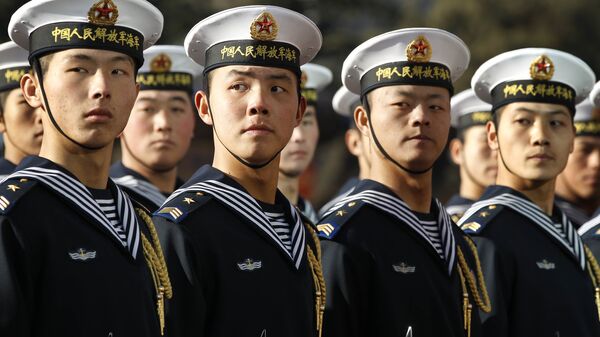China and Pakistan have now activated the second stage of the multi-billion dollar China-Pakistan Economic Corridor (CPEC) project through a series of agreements inked during the recent visit of Chinese Vice President Wang Qishan to the Pakistani cities of Islamabad and Lahore.
Explaining the impact and the implications of Vice President Wang's visit from the Indian perspective, Professor Srikanth Kondapalli of the Centre for East Asian Studies at New Delhi's Jawaharlal Nehru University, threw light on various aspects in an interview.
Sputnik: From an Indian perspective, what are New Delhi's security concerns with regard to Stage II of the CPEC?
Prof. Kondapalli: In general, the CPEC is a concern for India. Prime Minister Modi has in the recent past said, with an indirect reference to the CPEC, that "connectivity should not disturb sovereignty". There has been no change in the Indian government's position. Of course, during the second BRF (Belt Road Forum), Chinese President Xi Jinping noted that "we are concerned about sovereignty-related matters affecting BRI projects." From a security point of view, a comment made by Indian Army Chief General Rawat last year about India being ready to fight a war on two-and-a-half fronts gains relevance. The physical presence of Chinese security guards in Gilgit-Baltistan is a major concern for India. Whether the Chinese will withdraw those troops, and whether or not the Chinese interfere in Gilgit-Baltistan, these will be India's focus.
READ MORE: China Deploys Troops Near India-Pak Border to Safeguard CPEC Projects — Reports
What China and Pakistan are doing with the CPEC, that's fine, it is between them. India's objection is to projects in Gilgit-Baltistan and Kashmir. India is not concerned about how much China is investing or not investing in other parts of Pakistan.
Sputnik: Pakistan recently played host to Chinese Vice President Wang, during whose visit a number of agreements related to the second phase of the China-Pakistan Economic Corridor (CPEC) project were signed. How should India view this?
Prof. Kondapalli: The Indian government's stand with regard to Pakistan is well documented in the public domain. New Delhi has very clearly and consistently stated that there can be no talks with Islamabad as long as the latter continues to support terror outfits operating on its soil. Therefore, we can safely say the stalemate remains between the two countries.
Prof. Kondapalli: The relationship between India and China is progressing along expected lines. Naturally, while the elections in India were on, not much would have happened in terms of diplomatic engagement. Now post-elections, both countries are preparing for a second Wuhan-like informal summit in India sometime in October. Varanasi has been mentioned as a possible destination to host the summit. What we are seeing now is neither of the countries wanting a repeat of a Doklam-like situation.
Both wish to normalise the relationship. So there is forward movement in the India-China relationship while the India-Pakistan relationship looks stalemated.
The views and opinions expressed in this article are those of the speaker and do not necessarily reflect the official position of Sputnik.




